Coronavirus: Shopkeepers brace for uncertain reopening: 'Life’s changed completely now forever'
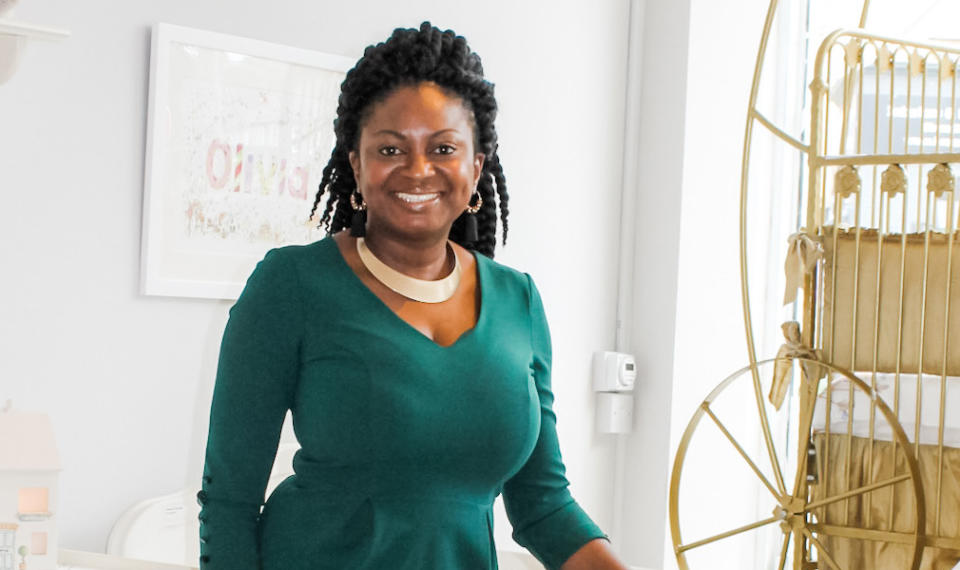
Shops across Britain are preparing to reopen for the first time in months from 15 June, uncertain of what will happen when they do.
While some shopkeepers are eager to get back to work and hopeful that business will return, others fear reopening could simply spell more financial trouble if High Streets remain empty.
All agree there will be no going back to normal. The pandemic has already fundamentally changed the way we shop. Both retailers and customers must now adapt to the new realities of the post-COVID world.
“Life’s changed completely now forever,” Dave Hall, the owner clothing boutique Albie & Lonnie’s, told Yahoo Finance UK. “No matter what, shopping habits will change.”
‘It’s going to be challenging’
Non-essential businesses like Hall’s have been closed since March as part of the nationwide lockdown to curb the spread of COVID-19. The prime minister announced on Tuesday that non-essential shops could begin to re-open from 15 June as restrictions ease.
However, they will not look the same when they do.
Customer numbers will be limited, tape on the floor will mark where people can and can’t go, hand sanitisers stations will be dotted around, and protective screens will be placed in front of tills.
Read more: UK government reveals list of stores set to reopen on 15 June
Changing rooms must also be kept closed under government guidelines. That poses problems for a business like Hall’s. Albie & Lonnie’s in Rugby, Warwickshire, gets much of its business through suit hires for weddings. Grooms and groomsmen typically come in groups of around 10 to get fitted for the big day.
“Trying stuff on is going to be really difficult,” Hall said.
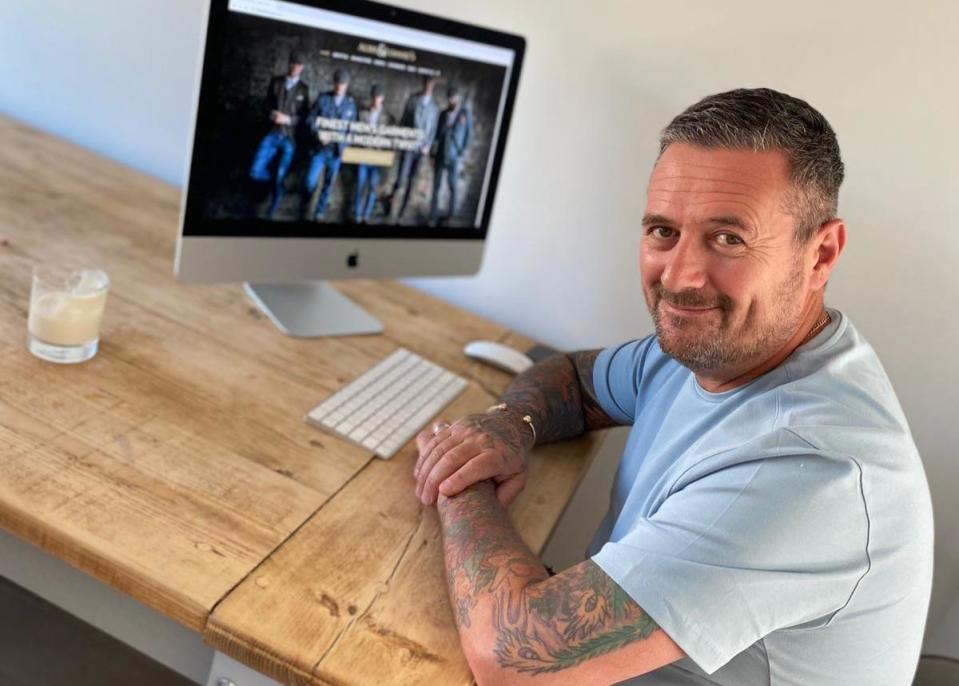
Even more mundane shop items — everything from pens to toys — might have to be taken off display if a shopper picks them up for a closer look.
“This is all a learn, something we’re just going to have to monitor,” said Mike Gaskell, the owner of Little Saffron’s gift shop in York. “But we have to adhere to these rules.”
Little Saffron’s sits on The Shambles in York, the city’s most famous shopping street. Business owners on the historic street — it was mentioned in the Domesday Book — face their own unique challenges.
“The street is only probably 5 metres, 6 meters apart,” Gaskell said. “On one of the buildings you can actually lean out at the top of the building to the other building and shake hands with the other person.”
Read more: Retail sales 'deeply depressed' with firms 'up against it'
The narrowness means the flow of people in and out of the street will likely have to be controlled.
“We need a starting point and an exit point for the street as well,” Gaskell said. “Even though it’s completely pedestrianised, we still need to think about the flow.”
Belgian authorities have introduced similar systems on shopping streets there. However, restrictions would likely reduce the amount of visitors to shops like Little Saffron’s.
“It will reflect on the take, of course it will,” Gaskell said. “There’s going to be a bit of frustration. It’s going to be challenging.”
‘It will take a lot of time to get confidence back’
For Michelle Nye, the owner of Chocolates and Truffles in Skipton, Yorkshire, safety measures have been “relatively straight forward”. But like many shopkeepers, she worries “fears” about COVID-19 will be a big problem.
“I don’t think the High Street will re-open with a huge flurry,” she said. “I think it will take a lot to get confidence back.”
Consumer confidence is currently at its joint-lowest level ever, according to polling firm GfK, suggesting consumers won’t rush back to the shops even when they’re allowed.
Unemployment has spiked in recently months and the economy is shrinking at a speed unprecedented in modern times.
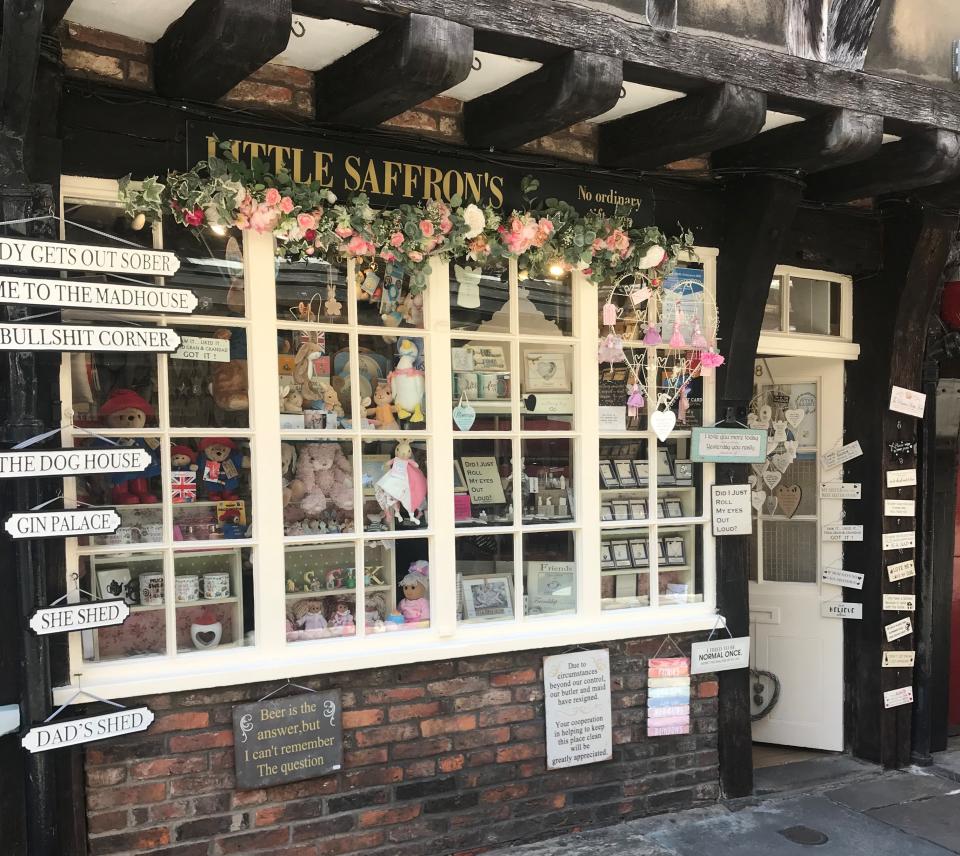
“We could be in a really, really deep recession by the time we get to Christmas,” Andrew Murray-Watson, the owner of Guzzl deli in Brixton, London, told Yahoo Finance UK.
“Even without the social distancing and the virus considerations, trading is probably going to be down significantly anyway simply because of the economic considerations that exist.”
Even if confidence does rebound, there’s no guarantee spending will go to shops. Consumers have gotten much more used to buying things online during the pandemic and many think this is a permanent shift.
The chief executive of online payment giant Klarna told Yahoo Finance UK earlier this month he believes it’s “very unlikely that people will entirely shift back to how they used to spend money before”.
Read more: COVID-19 will permanently change how we shop, says Klarna CEO
Marks & Spencer chief executive Steve Rowe said recently “some customer habits... have changed forever” and “the trend towards digital has been accelerated”. M&S’s new corporate strategy is called “Never the same again”, reflecting what Rowe termed “aftershocks [that] will endure for the coming year and beyond”.
“Some people are thinking oh the shops are opening, it’s all back to normal,” Nye said. “It won’t be. It can’t be.”
‘It would be more expensive to open’
All of this means the High Street is set to be far barer than it was prior to the pandemic. Not all shops will reopen and those that do will be open for fewer days than before.
Nye is considering opening for just a few days a week to manage costs. Albie & Lonnie’s will be open three days a week and Hall said most businesses in Rugby are planning to do the same.
“We’re free to open, but if there’s not enough people shopping, then there’s no point,” Murray-Watson of Guzzl said.
Read more: Marks & Spencer profits sink 21% as stores shut and clothing sales drop
As a food business, Guzzl has been allowed to operate through the crisis and has kept its shop open on Saturdays. But Murray-Watson doesn’t plan to expand opening hours even as lockdown restrictions ease. He launched an online shop during the pandemic and will instead focus on that.
“It would just be more expensive to open,” he said. “It simply isn’t worth doing it.”
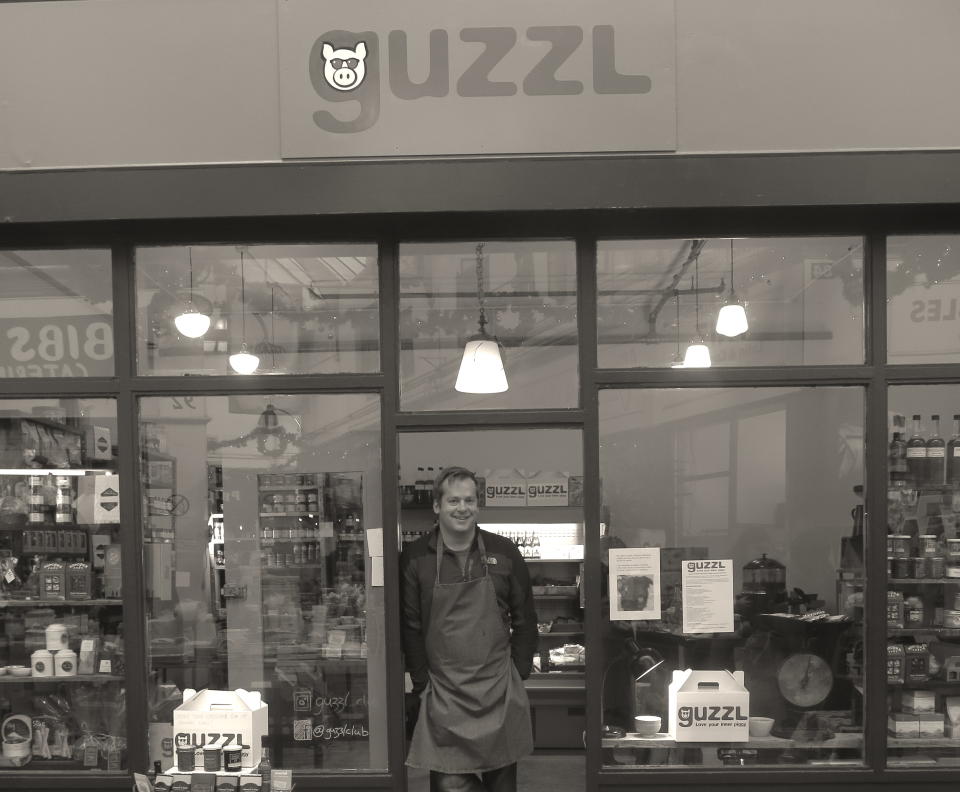
Independent shops are not the only ones limiting openings. Many retailers, such as John Lewis, have announced they will open just a small number of stores initially to test the waters.
“Until we have a working, available vaccine, I just don’t think a reasonable proportion of people will shop for fun anymore,” Murray-Watson said. “They’ll buy what they need online and they just won’t go out. Why would you? Why would you risk it?”
‘Bloodbath’
The combination of cautious consumers, new pandemic safety measures, and a looming recession mean many are predicting a dire time for retailers in the second half of 2020.
“It’s going to be a bloodbath between now and Christmas,” Murray-Watson said.
Stalwarts such as Laura Ashley, Debenhams, Oasis, and Cath Kidston have all collapsed into administration since the pandemic hit. Others like Marks & Spencer and Clarks have taken the decision to permanently close stores.
Read more: Shoe firm Clarks plans 900 job cuts with some stores shut for good
“I think what’s going to be difficult now is just surviving through til Christmas,” Hall said. “I think it’s going to be more difficult for the bigger guys.”
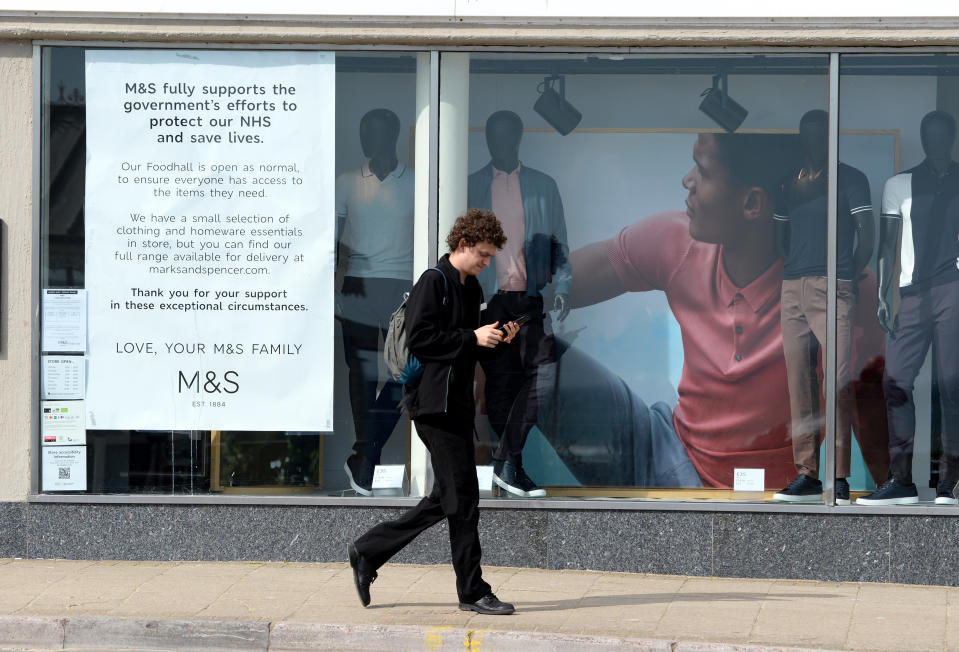
Still, despite all the clouds on the horizon, many of the shop owners Yahoo Finance UK spoke to were optimistic. Being an entrepreneur is a tough proposition at the best of times and many see the pandemic as just another challenge to take in their stride.
“I’m definitely very optimistic but that’s who I am as a person,” said Toks Aruoture, who runs The Baby Cot Shop in London.
Aruoture formerly ran a business in the US that collapsed in the 2008 financial crisis.
“At that time, everything was falling around us,” she said. “We watched our future and our fortune and our livelihood just disappear around us. I understand that that’s what lot of businesses are facing.
“I think once you’ve been through that sort of experience once in the past, you grow from it and you know that it doesn’t kill you.”
Aruoture “bootstrapped” The Baby Cot Shop after returning to the UK. The business began online but now boasts an address on The King’s Road, one of London most prestigious shopping streets.
Her shop deals with well-heeled clientele, many of whom book appointments in advance already, and Aruoture is hopeful her customer service-focused approach will keep business flowing.
Even so, she is “still thinking about” how often to open when restrictions are eased.
“I know my staff need the money,” Aruoture said. “I’ve got to balance things out and think what’s going to work for everyone.
“I think the important thing is being flexible and being open to change. Regardless of how optimistic we may be, we don’t know what’s going to happen.”

 Yahoo Finance
Yahoo Finance 